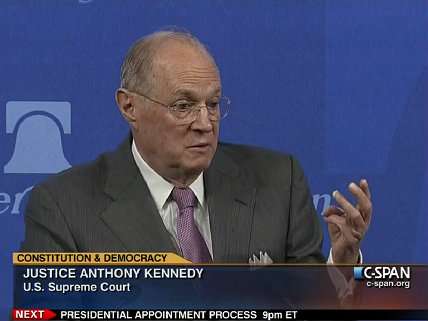Supreme Court Rules for 'Free Market' Over 'Self-Dealing' State Licensing Board in Teeth-Whitening Case
The U.S. Supreme Court ruled 6-3 on Tuesday against the North Carolina State Board of Dental Examiners, holding the state board guilty of engaging in "self-dealing" anti-competitive practices aimed at driving non-dentists from the state's lucrative teeth-whitening market.
The case, known as North Carolina State Board of Dental Examiners v. Federal Trade Commission, originated in 2006 when the state board began sending cease-and-desist letters to non-dentists who provided teeth-whitening services to paying customers. But because six of the board's eight members were licensed practicing dentists with a direct financial stake in preventing outside competition, the board's actions were deemed illegal under federal antitrust law. "At the end of the day," declared the U.S. Court of Appeals for the 4th Circuit, which ruled against the state board in March 2014, "this case is about a state board run by private actors in the marketplace taking action outside of the procedures mandated by state law to expel a competitor from the market."

The Supreme Court upheld that verdict yesterday. "Active market participants cannot be allowed to regulate their own markets free from antitrust accountability," declared the majority opinion of Justice Anthony Kennedy. To rule otherwise, Kennedy added, would be to ignore the "risks licensing boards dominated by market participants may pose to the free market."
Writing in dissent, Justice Samuel Alito argued that the risk of occupational licensing abuse was not the point. There is "nothing new," Alito wrote, about a state licensing board "serving the interests of dentists and not the public. Professional and occupation licensing requirements have often been used in such a way." The question for Alito was whether or not the Supreme Court had any business overriding the regulatory judgments made by this duly empowered state licensing board. He maintained that the Court did not. Yesterday's judgment, he complained, "diminishes our traditional respect for federalism and state sovereignty."
The problem with Alito's dissent, however, is that his approach would impose strict federal restrictions on private actors while turning a blind eye to a state board that has been captured by those same private actors and used to advance their own self-interested private agenda—which is clearly what happened here.
To be sure, Alito is right that the states possess broad authority to enact public health and safety regulations under our system of federalism. But that state power is not unlimited and those state regulations must serve a legitimate public health or safety purpose. In this case, the North Carolina dental board wielded public power on behalf of private gain. And that is precisely the sort of illegitimate state action that the Supreme Court should be guarding against.


Show Comments (30)